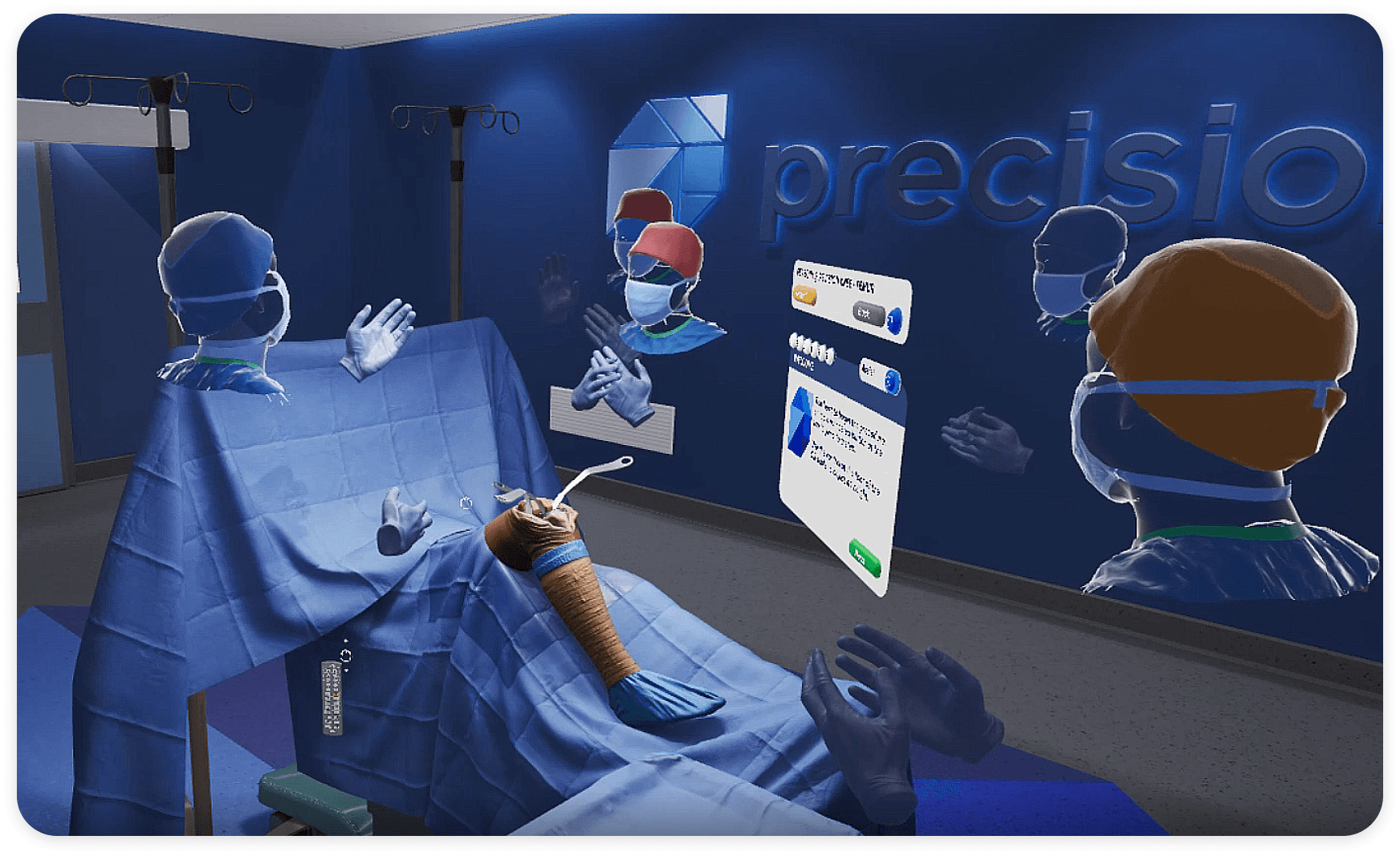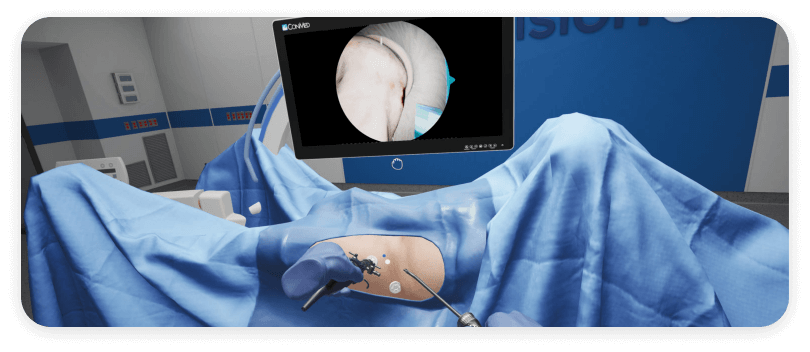Virtual Reality is being used by the British Healthcare Service Foundation Trust Guy’s and St Thomas’ to train new surgeons. The goal is to offer trainees a safe virtual environment in which they can improve their surgical skills before operating in a real-life scenario.
Using headsets and motion controllers in their hands that are able to recognize their gestures, they create an avatar with which they immerse themselves in a virtual environment. Once there, they attend a lecture that precedes a virtual practice in an operation theater. Complex surgical interventions such as hip and knee replacements or anterior cruciate ligament reconstructions are performed by trainees in this context.
Adil Ajuied, a consultant knee surgeon that was responsible for setting up the latest VR training surgical training event for Guy’s and St Thomas’ in London, has compared this type of training with aviation simulation. “The benefit for our patients”, stated Ajuied, “is that they will be cared for and treated by surgeons who have had the opportunity to rehearse, practice, and run through their surgical procedures.”
Joining Forces to Create a New Paradigm
Of course, the effort required for creating such an ambitious surgical training protocol – one whose goal is in fact to revolutionize surgery training and practice – was shared with a few other institutions aside from Guy’s and St Thomas’.
PrecisionOS is an innovative tech company that has developed a medical-grade platform that recreates operating room conditions with an unprecedented level of detail. The company’s goal is to provide healthcare service institutions with a scalable and cost-effective solution to enhance learning and skills acquisition. Recently, PrecisionOS partnered with CONMED, the powerful American medical device manufacturer to start co-hosting virtual reality surgical training events across different locations.
During the event, Adil Ajuied stressed how surgical training is facing major challenges in the aftermath of the pandemic. While institutions are asking young surgeons for the highest standards in clinical care and technical skills, they are also demanding that they cope with the strain of a healthcare system that continues to struggle with the ongoing effects of the great tectonic shift that the pandemic represented. “Surgical education and training require a paradigm shift in the way we interact, communicate, and educate core knowledge and technical skills”, he expressed.
VR Surgery training sessions are performed in environments that are designed to look, sound, and feel real. By engaging in these immersive experiences, future surgeons can get the feeling of being inside an operating room without the need of practicing on real patients – which, as it is easy to imagine, tends to make everyone involved anxious.
The aim of these VR training programs is to turn surgical training into a much more personalized process. By providing trainees with detailed performance metrics during and after procedures, they can help them assess their surgical skills in real time and identify which areas need improvement.
To learn more about the latest tech trends, keep reading our blog!












